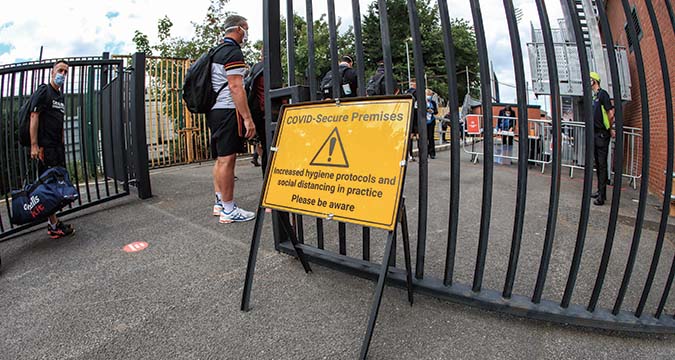 New measures to combat Covid-19 and the new Omicron variant were passed by the House of Commons last (Tuesday) night.
Included in the 'Plan B' rules announced by Boris Johnson last week and now introduced are stricter measures on attending sports venues.
Here's how this is all set to impact on those heading to Rugby League matches...
What
New measures to combat Covid-19 and the new Omicron variant were passed by the House of Commons last (Tuesday) night.
Included in the 'Plan B' rules announced by Boris Johnson last week and now introduced are stricter measures on attending sports venues.
Here's how this is all set to impact on those heading to Rugby League matches...
What How will the new Covid rules affect Rugby League supporters?
 New measures to combat Covid-19 and the new Omicron variant were passed by the House of Commons last (Tuesday) night.
Included in the 'Plan B' rules announced by Boris Johnson last week and now introduced are stricter measures on attending sports venues.
Here's how this is all set to impact on those heading to Rugby League matches...
What
New measures to combat Covid-19 and the new Omicron variant were passed by the House of Commons last (Tuesday) night.
Included in the 'Plan B' rules announced by Boris Johnson last week and now introduced are stricter measures on attending sports venues.
Here's how this is all set to impact on those heading to Rugby League matches...
What 